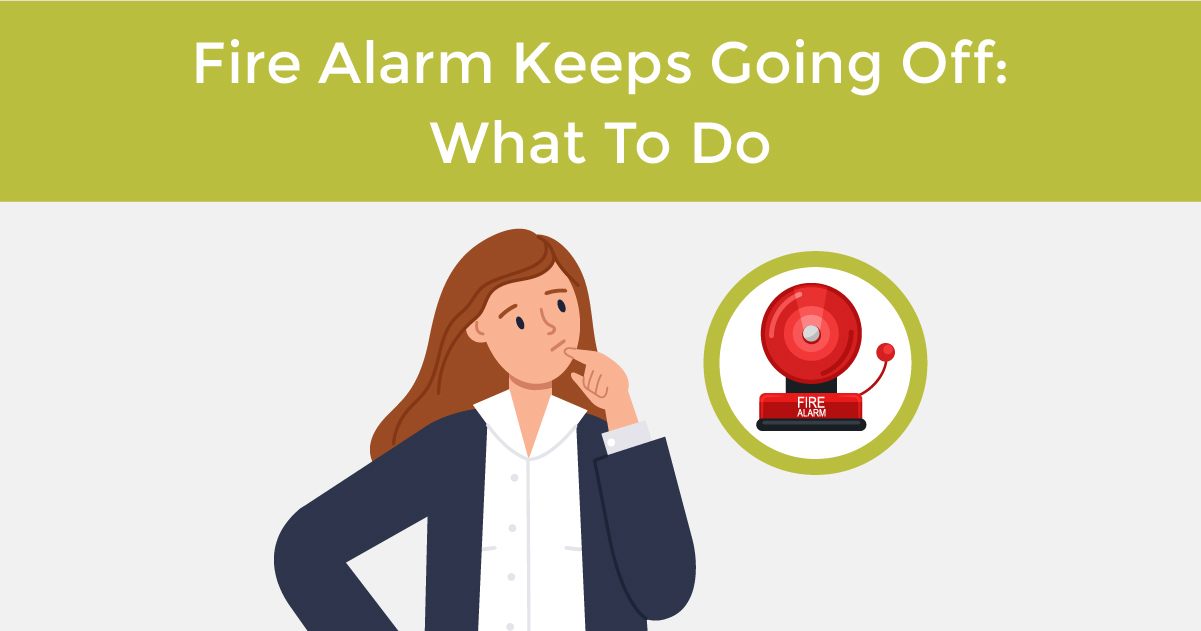A fire alarm system is crucial for protecting lives in any building, which is why every commercial building is required to have one by law. The systems can vary depending on the nature of your business and the layout of your structure, but one common complaint about fire alarms is related to malfunctioning and false activations.
If your commercial fire alarm keeps going off by itself when there isn’t fire or smoke present, it can be quite a headache – literally and figuratively – for your business and the people working within your building.
This month at Surrey Tech Services Ltd, we’ll break down why false alarms might be happening, highlight how common a problem it is, and discuss why it’s an issue along with what you can do to stop them.

Why does a fire alarm go off unexpectedly?
Firstly, it’s important that you don’t dismiss an alarm activation as being false every time. You should always follow your usual evacuation procedure to ensure people are kept safe above all else. There may be a fire somewhere in your building that simply hasn’t been noticed yet, especially if you have a large complex.
Don’t let false alarms lead to a false sense of security.
Once you’ve checked the building and there isn’t a fire, then it’s time to start investigating why the alarm went off. There can be multiple reasons for this, but here are the common reasons we find alarms go off unexpectedly:
- Dust and dirt – too much dirt, dust and grime gathering on your alarm’s sensors can impact sensitivity, meaning it can randomly malfunction
- Battery issues – if your system relies on battery power, it might be that there is something wrong with the batteries or they may be drained
- Old system – while commercial alarms are built to last, everything has a finite lifespan, meaning parts of your system might have degraded and deteriorated to the point that they malfunction and trigger an activation if too outdated
- Human error – staff accidentally or carelessly setting off the alarm system can lead to false alarms
How common is a false alarm?
According to data released by the government, there were a total of 244,341 false fire alarms in England between March 2022 and March 2023. 167,568 of these were due to the apparatus (the rest being malicious), the highest levels since 2011/12.
False alarms are all too common, as highlighted in the figures above, with various elements of the apparatus itself leading to alarms triggering without fire or smoke present.
Why false alarms are a problem for businesses

Well, there are several reasons false alarms are such bad news for businesses, the first and most important relating to safety. If your staff become used to false alarms, they may not take a real incident seriously enough, setting a dangerous precedent that can cost lives and ruin your business.
The NHS reported a rise in false fire alarms in 2021, with statistics creating concerns about unnecessary evacuations that put patients at risk. On top of that, fire and rescue services always respond to every alarm call, wasting a lot of time and money. Overall, it’s estimated that false alarms can cost businesses in the UK around £1 billion.
Even if you don’t operate within critical, high-risk industries, false alarms are still bad news. Evacuation procedures should always be followed, and that will mean downtime for your operations. If this is caused by false alarms on a regular basis, it can really eat into productivity and profit — not to mention the frustration that can build within your staff.
How can false alarms be prevented?

Preventing false alarms should always be a priority, with proper staff training and instruction the first step to lowering accidental activation.
On top of this, regular fire alarm maintenance from trained and qualified experts will help to prevent false alarms. With potential issues spotted early, you can dramatically minimise the risk of a false alarm when your system is in top working order. This is not only an investment in keeping your business running smoothly, but also an investment in the well-being of the people in your building, from staff to guests.
In addition to a professional maintenance appointment every six months, you are also required to conduct testing and inspections yourself, helping to spot and prevent problems early. You can find out more about this schedule of fire alarm testing here.
Of course, ensuring you have the appropriate fire alarm system for your particular sector and building in the first place will go a long way to ensuring you minimise false alarms with the right level of detection, too.
At Surrey Tech Services Ltd, not only can we advise you on the best fire alarm system for your building, but we can also offer you ongoing fire alarm maintenance appointments. This will help to lower the number of false fire alarms while helping you to meet your legal obligations.
Call today to discuss your requirements or to book an appointment with an engineer.




